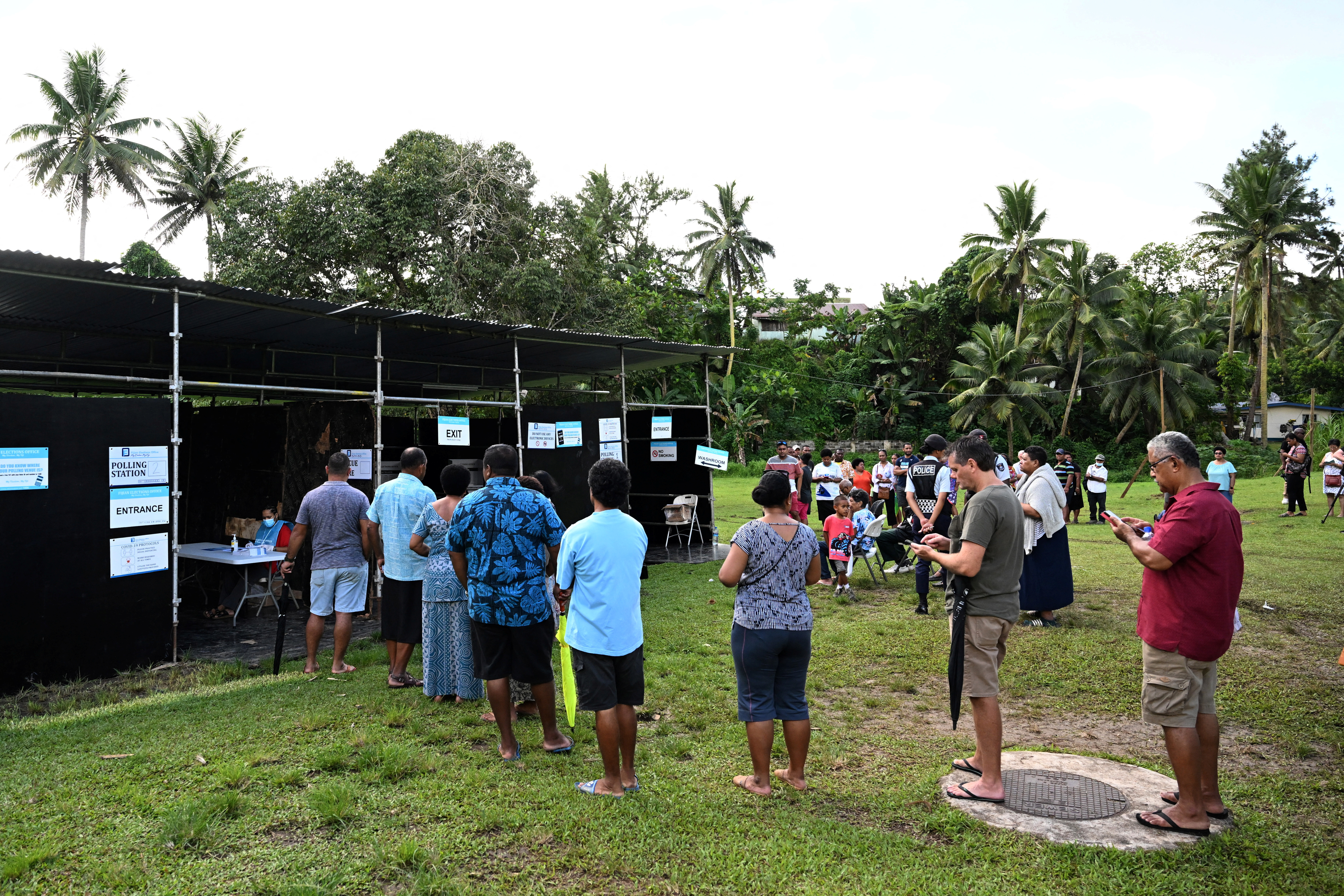
Polling closed in the Pacific island nation of Fiji's national election on Wednesday evening, where voter turnout of less than 60 per cent was the lowest in a decade, analysts said.
It is the third democratic election held since Prime Minister Frank Bainimarama came to power in a coup in 2006.
This election, his Fiji First party faces a tight race against another former coup leader and one-time prime minister, Sitiveni Rabuka, whose People's Alliance Party has formed a coalition with Fiji's oldest political party, the National Federation Party.
Bainimarama has a high international profile for climate change advocacy and has been chairman of the Pacific Islands Forum, the regional diplomatic bloc, as it sought this year to manage rising security tensions between the United States and China.
Shailendra Singh, a political commentator and associate professor of Pacific journalism at the University of South Pacific in Fiji, said the voter turnout, likely between 50% and 60%, was the lowest since Fiji's constitution was reformed in 2013. The rising cost of living and the economy were major issues for voters, he said.
Bainimarama's Fiji First supporters campaigned on stability and progress, while the opposition said national debt was too high, and questioned the state of democracy, he said.
"Critics of Fiji First feel that this one party has been in power for too long and maybe its time for a change," Singh told Reuters in a telephone interview after polling closed on Wednesday.
The election campaign stopped 48 hours before polling day, as a strict media blackout was enforced until booths closed at 6pm.
Singh co-authored a study on the 2018 election that found media coverage favoured the government, and a punitive media law could be having a chilling effect.
Concerns, expressed by opposition parties and civil society groups, about media self-censorship continued at this election, he said.
"The nature of democracy has been under question for some time - not all democracies are perfect and Fiji is trying, this is part of Fiji's journey of moving to a more democratic system," Singh said.
Fiji's government has rejected criticim by opposition parties about the media law.
A multinational observer group led by Australia, India and Indonesia includes 90 election observers who are also monitoring the national vote counting centre.
Dr Stewart Firth of the Australian National University said this election would be a "tight race".
Tourism has rebounded in 2022 after COVID restrictions lifted, which was a plus for Bainimarama, but there was criticism the judiciary had been undermined by his government, he said. (Reuters)
3 minute readDecember 14, 20223:03 PM GMT+7Last Updated 2 hours ago
Counting begins in Fiji national election
[1/2] Voters queue at a polling station to vote during the Fijian general election in Suva, Fiji, December 14, 2022. AAP Image/Mick Tsikas via REUTERS
SYDNEY, Dec 14 (Reuters) - Polling closed in the Pacific island nation of Fiji's national election on Wednesday evening, where voter turnout of less than 60 per cent was the lowest in a decade, analysts said.
It is the third democratic election held since Prime Minister Frank Bainimarama came to power in a coup in 2006.
This election, his Fiji First party faces a tight race against another former coup leader and one-time prime minister, Sitiveni Rabuka, whose People's Alliance Party has formed a coalition with Fiji's oldest political party, the National Federation Party. read more
Bainimarama has a high international profile for climate change advocacy and has been chairman of the Pacific Islands Forum, the regional diplomatic bloc, as it sought this year to manage rising security tensions between the United States and China.
Shailendra Singh, a political commentator and associate professor of Pacific journalism at the University of South Pacific in Fiji, said the voter turnout, likely between 50% and 60%, was the lowest since Fiji's constitution was reformed in 2013. The rising cost of living and the economy were major issues for voters, he said.






